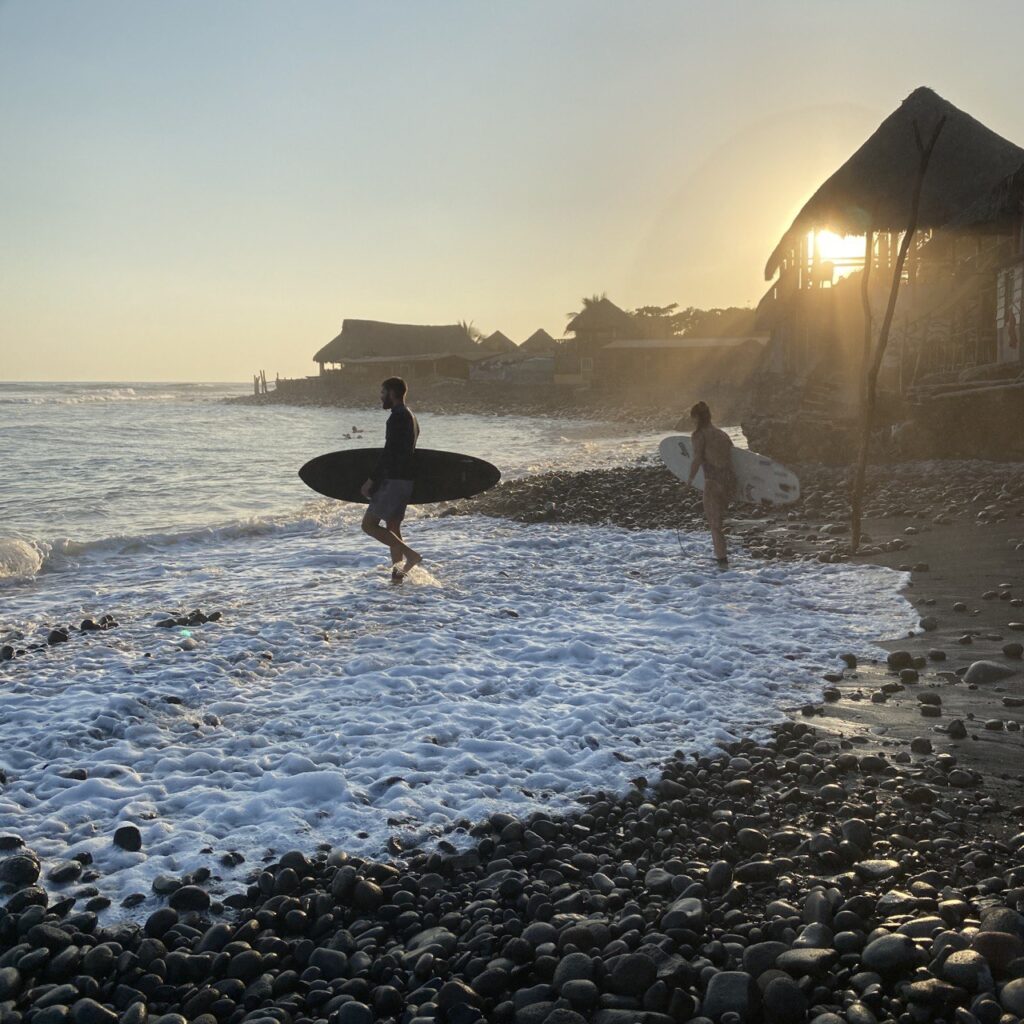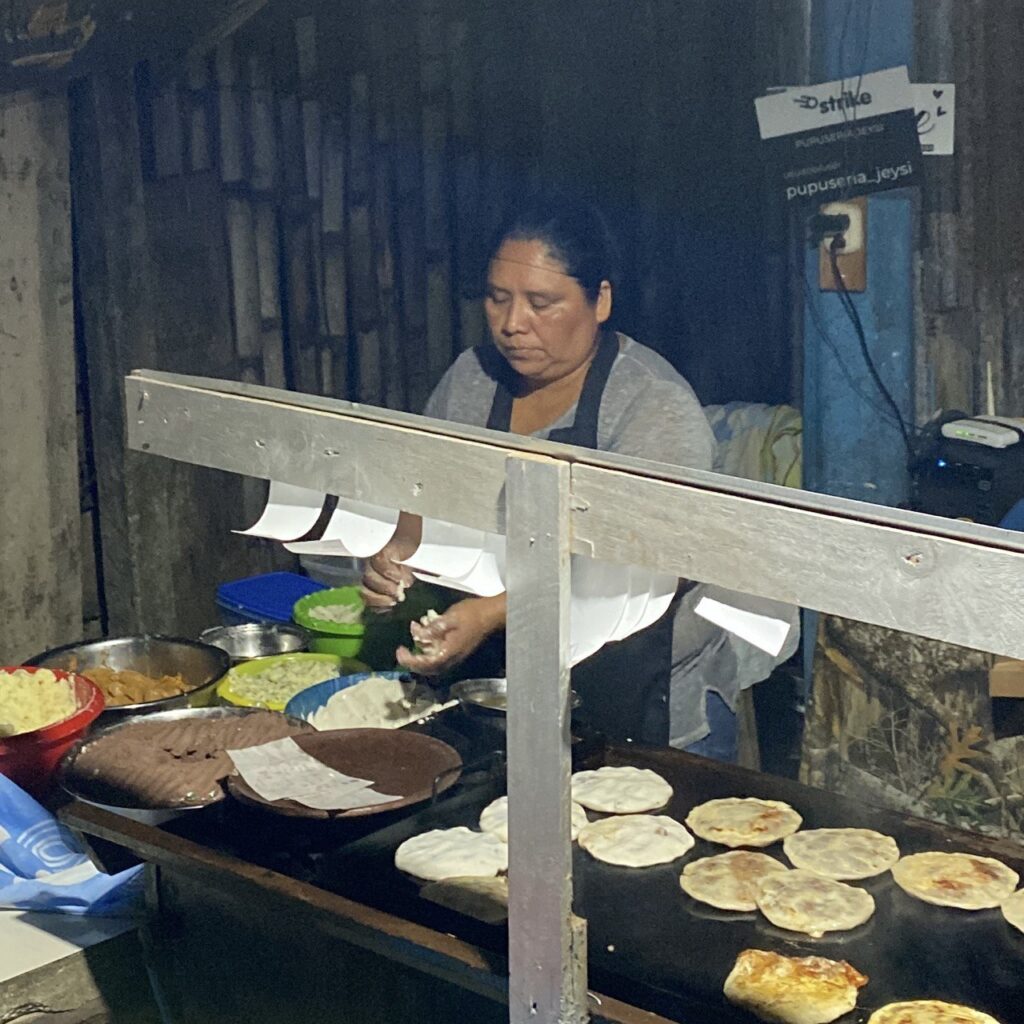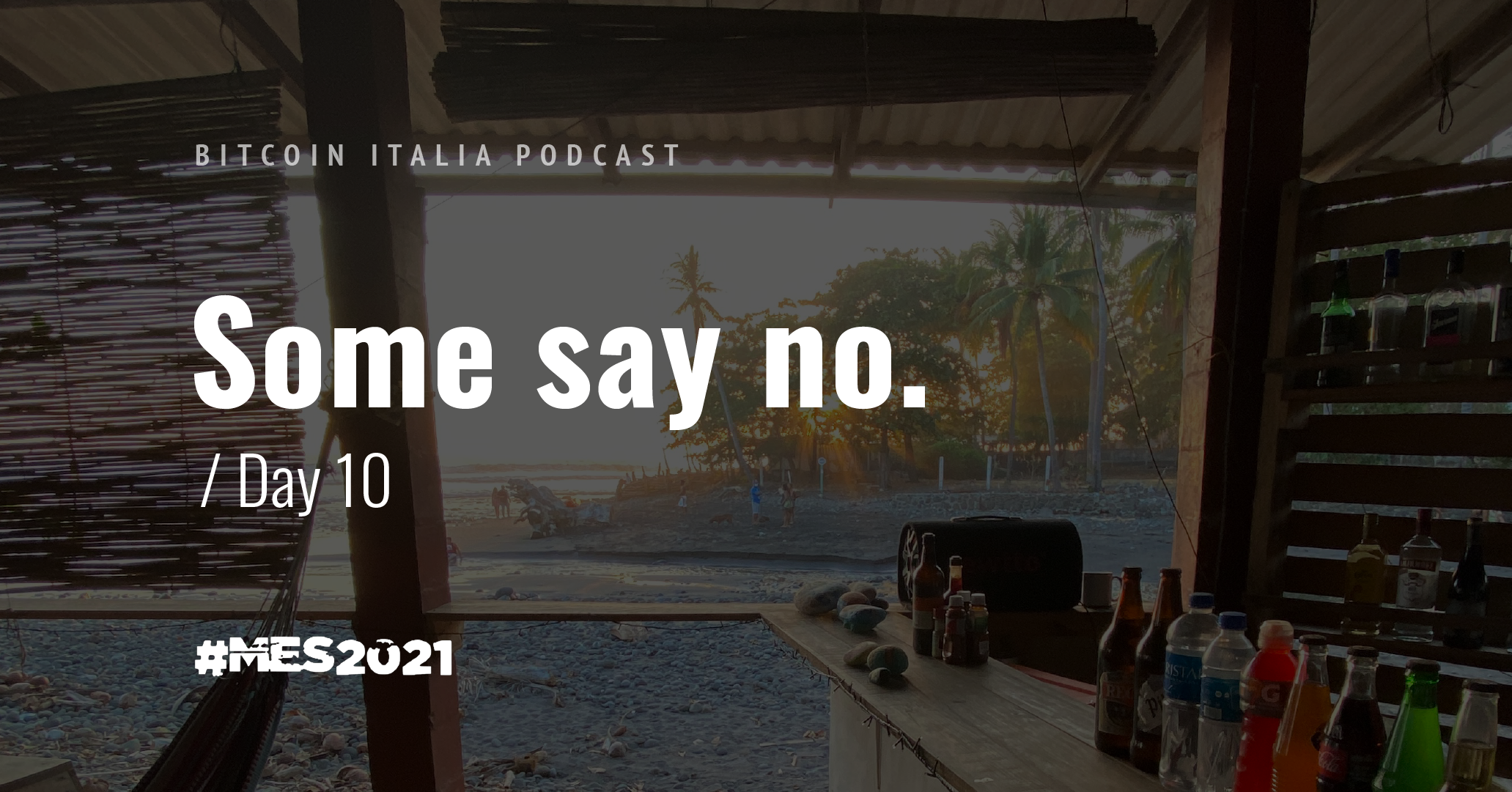

It took us three days to figure out how the settlement that they call El Zonte here develops. Not so much for its vastness, in fact it is a rather small conglomerate of buildings, but for its total illogicality. It rises in a small coastal inlet, on either side of the mouth of a small river, the Rio el Zonte. From the state road that overlooks it, the coastal road of which we have already spoken, there are four different accesses, little more than dirt paths that lead to the sea, on the sides of which are developed settlements. The Bitcoin Beach is literally divided by a river and to pass from one side to the other without wanting to go up to the state highway, you have to wade through the Rio. Nothing too complex, of course. We are in the dry season and it is reduced to little more than a rivulet.
In some of its parts, the most suggestive, it resembles a pirate village, made of sandy streets, shacks assembled with wooden planks and recycled materials, roofs of woven palm leaves. Most of the bars and stores are hovels made out of old containers or rusty corrugated metal sheets. Walls peeling from the salt, chairs and tables made of patched wood, nylon hammocks faded by the sun. Some views seem stolen from the set of a post-apocalyptic movie. On all sides, however, the view of the ocean is breathtaking, especially at sunset, and the charm of its most humble areas is irresistible.
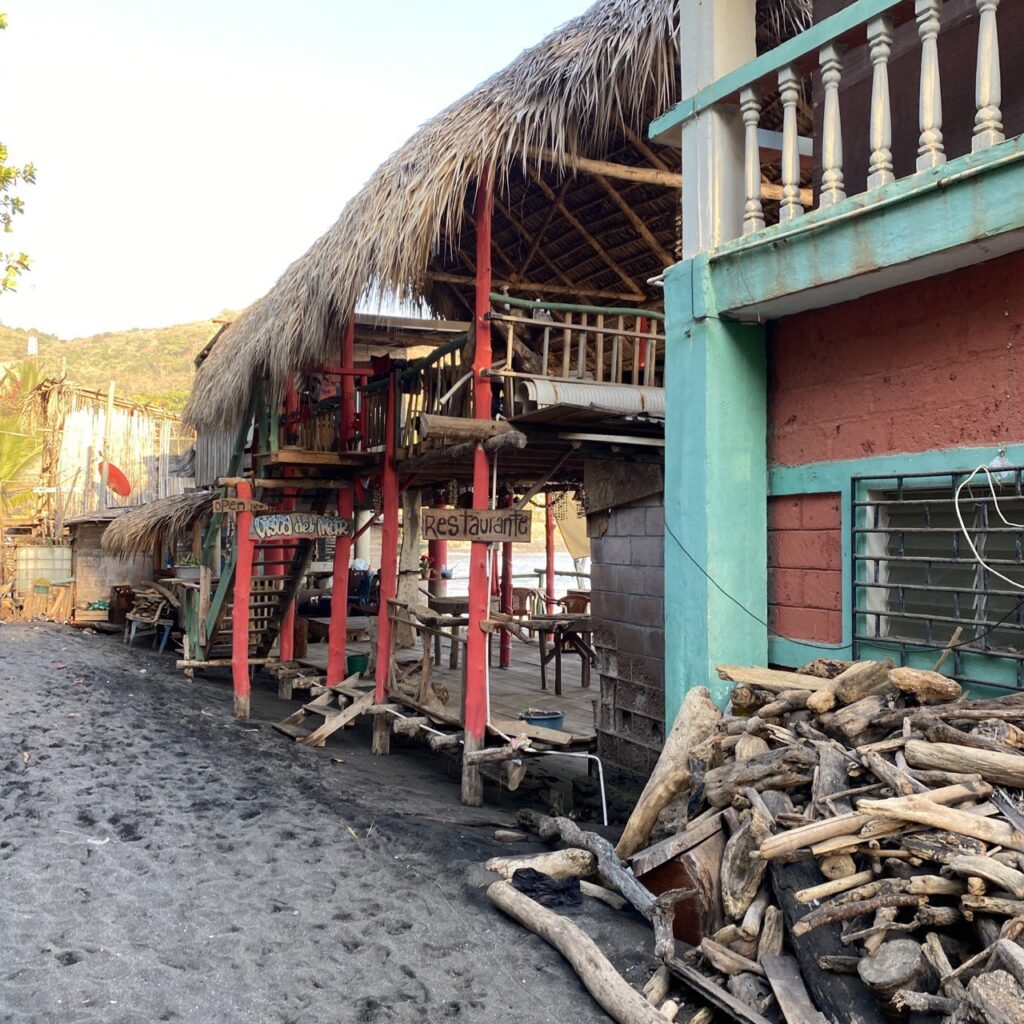
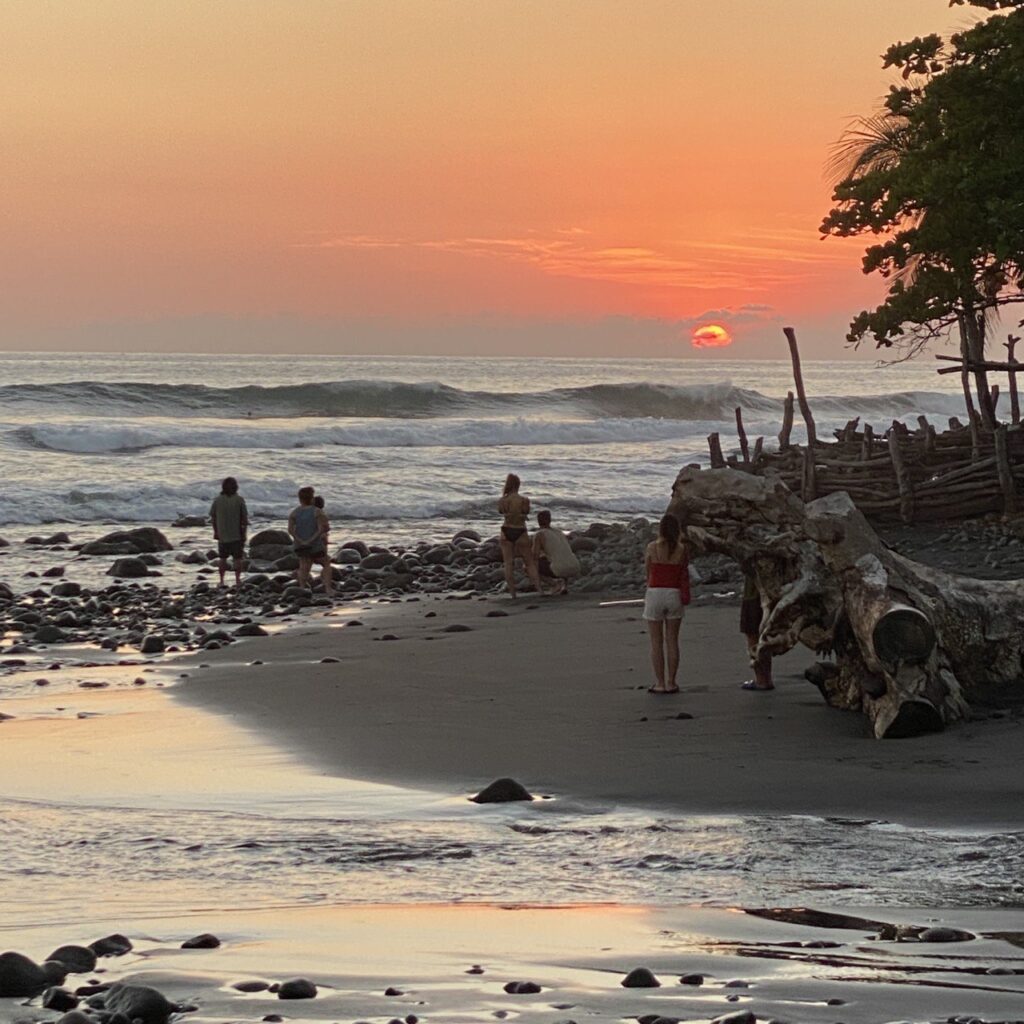
We cannot fail to notice the absurd contrast between the different styles of architecture. Here and there, in fact, among the hovels made of scrap, brand new masonry houses sprout up, with freshly laid white plaster, elegant Hawaiian-style gazebos and turquoise water swimming pools. These buildings are always hotels and always sport the Bitcoin logo in bold letters on their exterior facades. They display it in the most diverse styles and forms: with neon lights, large painted signs, even airbrushed on the many surfboards hanging on the walls. Someone here has already smelled that business is coming and has wasted no time to avoid being caught unprepared. The tourist traps are already set and are just waiting for the prey to pass by. The risk that El Zonte will soon turn into a sort of crypto Las Vegas is concrete, almost inevitable. We are happy to have visited before the irreparable, when it still retains a glimmer of its authenticity.
We shop casually and that’s a good thing, because we buy things we really needed, like a tube of toothpaste and mosquito repellent. Everyone here really seems to accept bitcoins and we can walk around the little stores without fear of someone asking us for cash. It’s the last light of day, the sun is about to plunge into the Pacific and radiate the sky in an unreal pink and orange. Surfers jump into the water to take advantage of the last waves and the atmosphere is really suggestive.
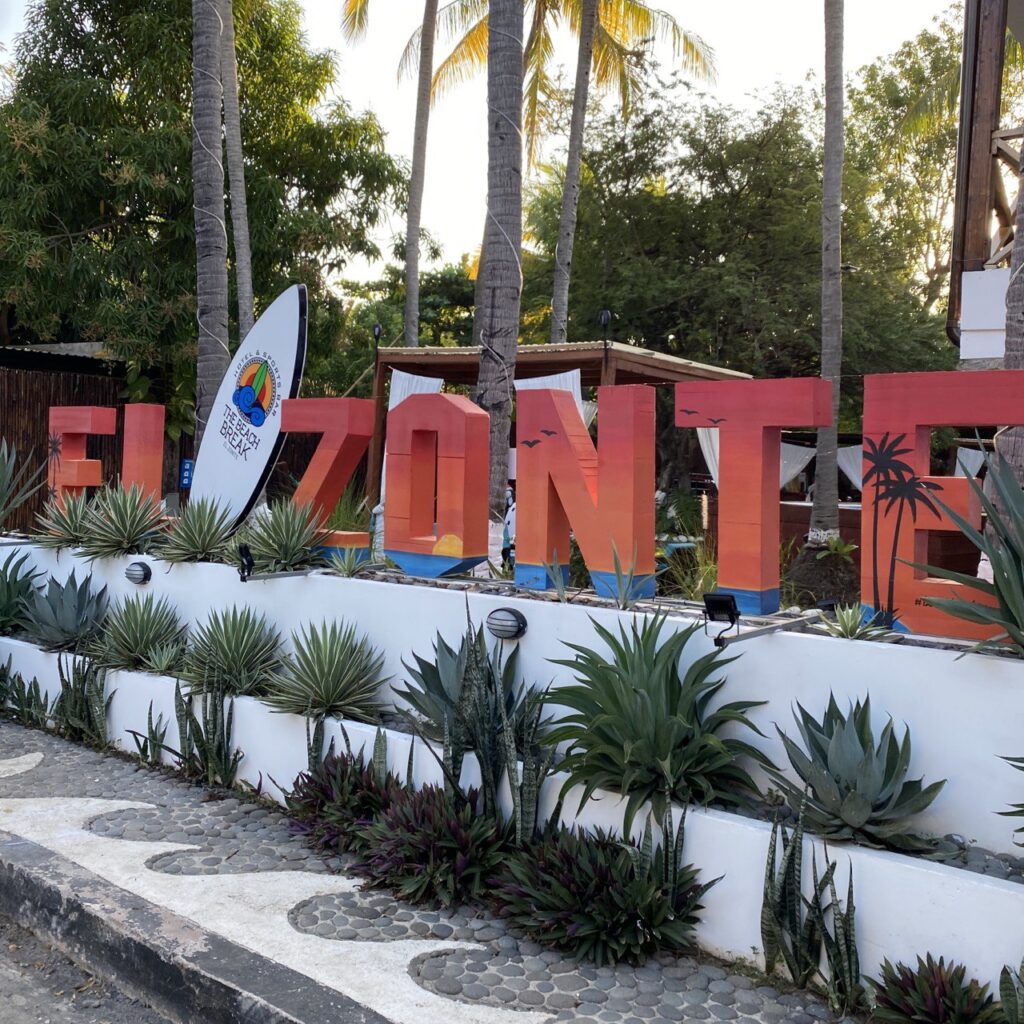
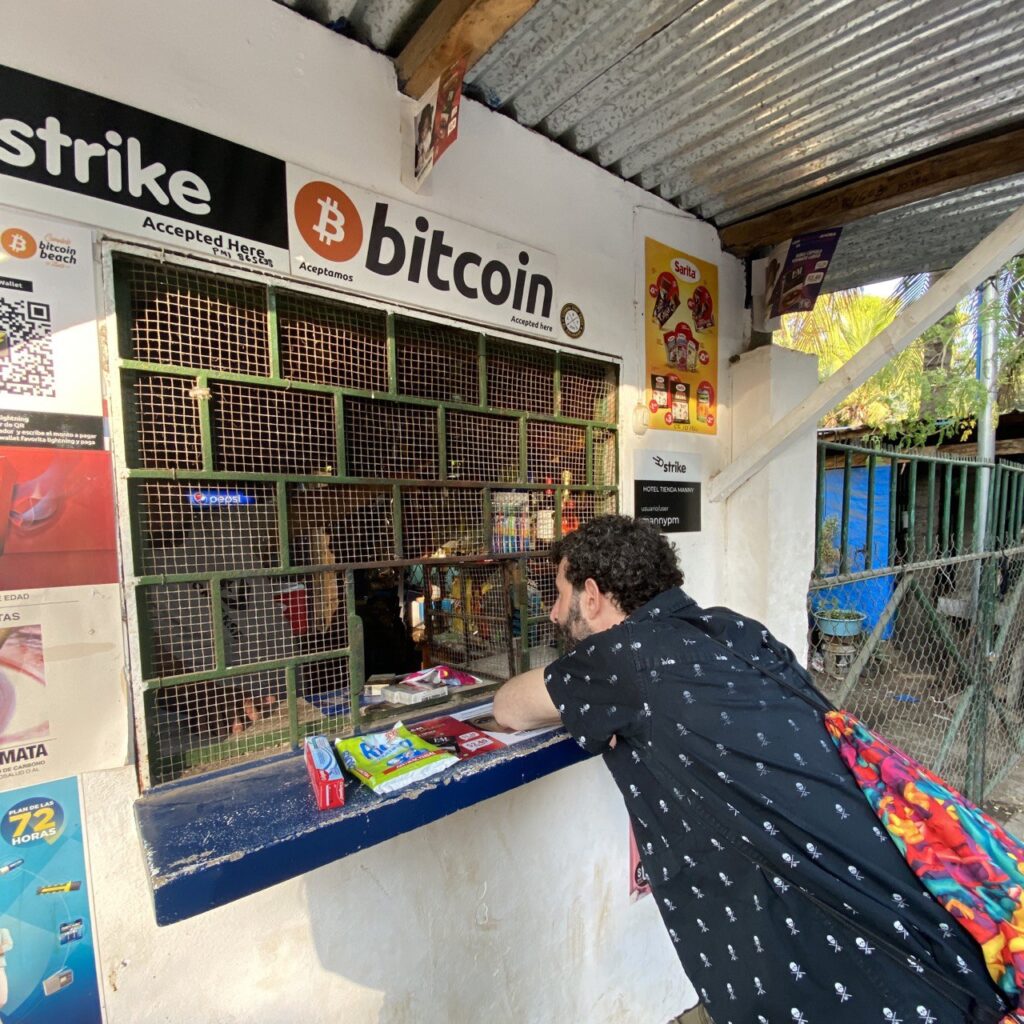
It is at this moment that we notice a small bar, nothing different from the others, to tell the truth, but blessed with a very special location. It stands right at the corner between the mouth of the Rio and the sea, it has a canopy made of patched up wood and two hammocks in the perfect position. They seem to stand out against the sunset. We enter hesitantly, because it is deserted, we try to order two beers but the answer we get leaves us speechless.
No bitcoin is accepted here.
Maria, the young owner, explains that she doesn’t even think about converting and will resist to the last. She doesn’t believe in technology and thinks it’s a scam by the rich to the detriment of the poorest. She points out that up until a few weeks ago no one, not even in the infamous Bitcoin Beach, took much notice of them. In the street where his bar is located, for example, only three businesses, an absolute minority, were willing to receive them as payment. Then, he explains, came the big conference in El Salvador and the media propaganda began to be hammered out. Preparations for the event were flaunted on TV and newspaper front pages, and President Bukele didn’t seem to know how to talk about anything else. And then there was the big day: the lights, the fireworks, the deafening music. It’s as if at that point the country was swept up in Bitcoin fever. People started to believe that soon everyone who owns a few satoshi will become a millionaire, he explains, the truth is that it’s not, it’s just a scam, a lure for rich westerners.
Money, she adds, is no joke, it’s the basis of society and the people of El Salvador use it to make a living. It can’t be replaced overnight with a computer trinket. More than half the population, she says, doesn’t have a smartphone, let alone internet access. What will they do? They will be permanently left to their fate, Maria argues.
When we point out to her that BTC could grow quite a bit in value, while the dollar is bound to lose some and is therefore a better currency to hold your savings, she almost bursts out laughing. She doesn’t believe this narrative at all, and besides, most people don’t make it to the weekend on the pay they get, so what savings should they ever accumulate? The only ones who could accumulate would be the rich and privileged, not those who really need it.
It is at this point that his criticism becomes more poignant. She doesn’t trust the people who brought Bitcoin to the village. She says they put on airs as missionaries but they are only doing it for their own personal gain and have used opaque methods in the past. These are people she doesn’t like. She with her business will resist as long as she can, until the government makes Bitcoin mandatory, because she is sure it will happen. And when they decide it will be Bitcoin or guns. That’s how it works in El Salvador, that’s how it has always worked and this time will be no different.
